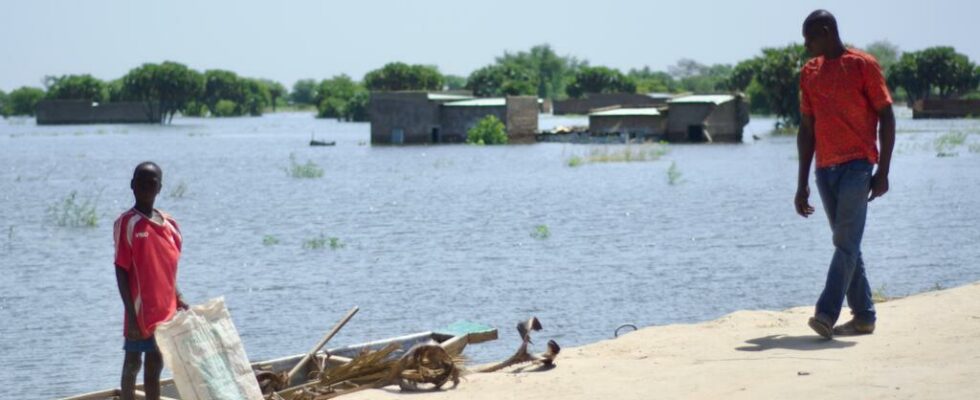In Chad, the flooding of the Chari and Logone rivers which threatened the capital Ndjamena seems to be decreasing in intensity in recent days, but the districts of the 9th arrondissement protected by the Walia dike continue to fight against water infiltration. The Chinese company Anda, chosen to build the dike for an amount of 22 billion CFA francs, or 33.5 million euros, works day and night to plug the breaches alongside the residents, but complains of not having was paid in full by the Chadian State.
2 mins
With our correspondent in Ndjamena, Carol Valade
Saleh Kochi’s phone never stops ringing. “ It’s been almost two months, every morning I leave the house at 5 a.m. and come back around 10 p.m. “. The technical director of the Anda company travels through the neighborhoods protected by the 32 km dike, 8 m high by 3 m wide, built after the devastating floods of 2022.
“ My name is Gilles. I live here in Walia, this is my home », Explains this resident whose house is located less than 10 meters from the river. He does not hide his concern: “ The progression of water which advances day by day. It threatens us too much. We’re afraid to sleep like that “.
“ We don’t pay until everything is finished », says the government
But the company’s machines are at a standstill due to lack of fuel. “ His Excellency Mr. President Mahamat Idriss Déby gave almost 22 billion so that this area is not flooded. It’s people’s lives that are in danger right now. So the State did not pay. We only received 60%. We are still intervening beyond the contract that the State has provided us. You saw, we made a dyke of almost 15 km which was not even provided for in the contract », denounces Saleh Kochi.
To which the government responds: “We don’t pay until everything is finished […]. We pay in stages following the progress of the work and there will be a part that will be paid when there is final acceptance “, Tahir Hamid Nguilin, Chadian Minister of Finance, told RFI.
The company says it has completed 97% of the planned work.
Also readFloods in Chad: why declaring a state of emergency is a sensitive subject
